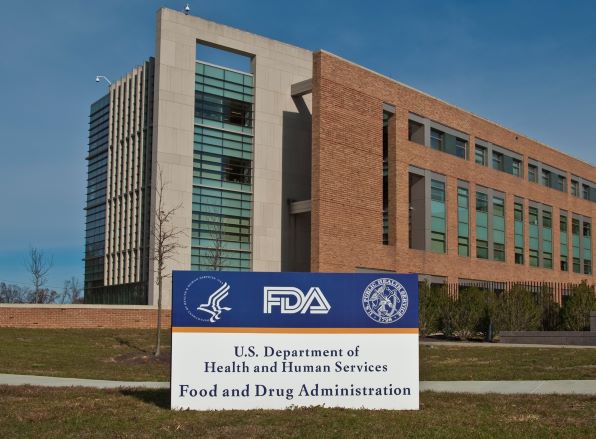The reasons many gave for not wanting to get treatment suggest the mental health system is not seen as providing safe and effective help.
A new study aiming to identify the reasons why half of American young adults with depression did not seek treatment found that many did not want to be involved in the mental health system. Of those choosing not to be treated, one in three preferred to handle their problem themselves, while one in five cited concerns about being involuntarily committed to a psychiatric facility or having to take psychiatric drugs. One in seven had no confidence that mental health treatment would help.
Using National Survey on Drug Use and Health data from 2011-2019, more than 21,000 young adults 18 to 25 years of age diagnosed with a major depressive episode over the previous 12 months were asked whether they had received any mental health treatment in the past year. Some 11,000 who self-reported not receiving treatment were further questioned about the reasons they did not seek treatment. Researchers led by Wenhua Lu, Ph.D., of City University of New York, published their findings online in JAMA Network Open.

In 2019, the top reason given for not seeking treatment was the cost (55%), followed by not knowing where to go for services (38%). But the next most prevalent reasons concerned staying out of the mental health system: able to handle the problem without treatment (31%) and concern that seeking treatment could result in an involuntary commitment to a psychiatric facility or having to take psychiatric drugs (23%). Additionally, 14% did not believe they would be helped by mental health treatment, and 10% did not think mental health treatment was necessary for their situation.
Researchers disclosed as a study limitation the potential of social desirability bias, which is the tendency of people to give socially acceptable answers, especially in interviews. Given that the respondents in this study were likely aware that the objective of the researchers’ questioning was geared towards getting more people into mental health treatment, some may have felt uncomfortable expressing their desire to exercise self-reliance, avoid the psychiatric drugs that are today’s primary mode of treatment for depression, or avoid the risk that a mental health practitioner could decide the person was in danger of committing suicide and use emergency-procedure laws to forcibly detain them in a locked psychiatric facility for evaluation and treatment. The figures for these reasons not to seek treatment could, therefore, be understated.
The researchers concluded that destigmatizing mental health treatment among young adults should be a priority. But any concerns these young adults have about the current mental health system are well-founded.
“Despite claims…that depression is due to a chemical imbalance, there is no evidence that there are any neurochemical abnormalities in people with depression.”
– John Read, Ph.D., professor of psychology, University of East London
Present-day psychiatry operates on a biomedical model, based on a still-unproven theory that biological abnormalities – primarily chemical imbalances in the brain – cause diagnosable mental disorders and can be corrected with psychiatric drugs.
This model is without scientific proof, according to researcher John Read, Ph.D., professor of psychology at the University of East London, and Joanna Moncrieff, a psychiatrist and researcher at University College London, who reviewed the evidence in medical literature on the use of antidepressants for treating depression. They concluded the drugs are ineffective, harmful to brain function, and rest on assumptions of brain dysfunction that have never been proven.
“Despite claims by professional organizations and the pharmaceutical industry that depression is due to a chemical imbalance that can be rectified by drugs, there is no evidence that there are any neurochemical abnormalities in people with depression let alone abnormalities that might cause depression,” they wrote in Psychological Medicine earlier this year.
What’s more, psychiatry’s biomedical model, with its associated diagnoses of mental disorders, takes a psychological toll on the individual, these researchers say: “It encourages people to view themselves as the victims of their biology, to adopt pessimistic views about recovery, increases self-stigma and discourages people from taking active steps to improve their situation.”

The prescribing of antidepressants as first-line treatment for depression has been challenged by other research showing the drugs are not effective. Researchers Mark Horowitz, Ph.D., of the Division of Psychiatry at University College London, and Michael Wilcock, pharmaceutical researcher at Royal Cornwall Hospitals NHS Trust, reviewed meta-analyses of newer generation SSRI and SNRI antidepressants. Writing in the BMJ Drug and Therapeutics Bulletin in 2021, they reported finding no clinically significant difference in measures of depression symptoms between adults treated with antidepressants and those taking placebos, whether over a shorter or longer timeframe and regardless of the study participants’ depression severity.
The harm of antidepressants is also well documented. The Citizens Commission on Human Rights (CCHR) database of psychiatric drug side effects currently lists 283 research studies and 155 drug regulatory agency warnings about adverse effects from antidepressants. Those harmful side effects include insomnia, emotional dulling, sexual dysfunction, anxiety, irritability, hostility, aggressiveness, loss of judgment, and the impulsivity and mania that can lead to violence and suicide.
Patients taking antidepressants also face the risk of serious withdrawal symptoms when discontinuing the drugs, even when slowly tapering off them under the supervision of a physician. A study published in 2020 in the Journal of Osteopathic Medicine advised that over time, antidepressants “can be notoriously difficult to quit because they can produce a state of physical dependence.”
Researchers James Davies, Ph.D., co-founder of the U.K.-based Council for Evidence-based Psychiatry, and John Read, Ph.D., of the University of East London, conducted an analysis of 23 peer-reviewed studies on withdrawal from antidepressants. Their study, published in Addictive Behaviors in 2019, found that more than half (56%) of people who attempt to come off antidepressants experience withdrawal effects, with nearly half (46%) of them rating those effects as “severe.”
Laws that allow the involuntary commitment of a depressed person to a psychiatric facility if deemed by a mental health practitioner to be at risk of suicide were a very real concern to many of the young adults who refused treatment. Those laws are the target as well of guidelines issued in 2021 by the World Health Organization (WHO), advising U.N. member nations to abolish coercive mental health practices, in keeping with the rights enumerated in the U.N.’s Convention on the Rights of People with Disabilities (CRPD).
“The right to liberty and security of person in the CRPD underscores actions to address coercion by prohibiting the deprivation of liberty based on a person’s disability,” the guidelines state. “This right significantly challenges services, policy and law in countries that allow involuntary admission on the basis of a diagnosed or perceived condition or disability, even when additional reasons or criteria are given for the detention, such as ‘a need for treatment,’ ‘dangerousness’ or ‘lack of insight.’”
The WHO document condemns coercive mental health practices that it says are pervasive “despite the lack of evidence that they offer any benefits, and the significant evidence that they lead to physical and psychological harm and even death. People subjected to coercive practices report feelings of dehumanization, disempowerment, being disrespected and disengaged from decisions on issues affecting them. Many experience it as a form of trauma or re-traumatization leading to a worsening of their condition and increased experiences of distress.”
The proper response to so many young adults not getting treatment for their depression is not to launch a destigmatization campaign, but to overhaul the mental health system to provide the kind of safe and effective help that people will want to get.
WARNING: Anyone wishing to discontinue or change the dose of an antidepressant or other psychiatric drug is cautioned to do so only under the supervision of a physician because of potentially dangerous withdrawal symptoms.
CCHR recommends that individuals experiencing depression ask their physician for a complete physical examination with lab tests to identify any underlying physical condition that could be causing the mental symptoms that might otherwise be misdiagnosed as a psychiatric condition.
CCHR advocates for the full disclosure of the risks of serious side effects and withdrawal symptoms from antidepressants and other psychiatric drugs, so that patients can make fully informed decisions about taking or discontinuing the drugs.
